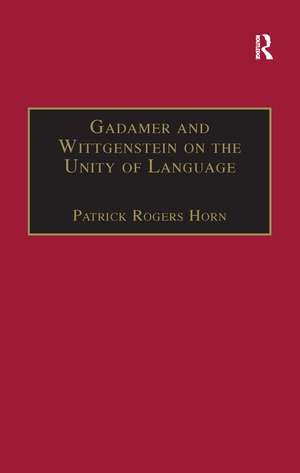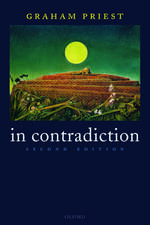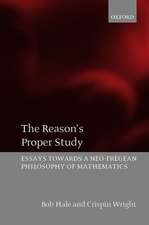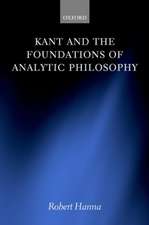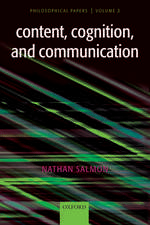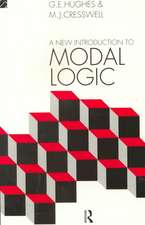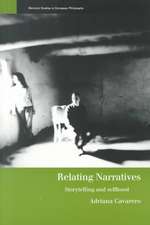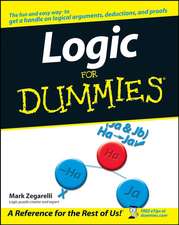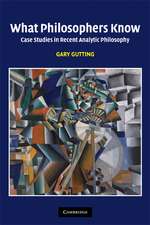Gadamer and Wittgenstein on the Unity of Language: Reality and Discourse without Metaphysics: Ashgate Wittgensteinian Studies
Autor Patrick Rogers Hornen Limba Engleză Paperback – 11 noi 2016
| Toate formatele și edițiile | Preț | Express |
|---|---|---|
| Paperback (1) | 338.33 lei 6-8 săpt. | |
| Taylor & Francis – 11 noi 2016 | 338.33 lei 6-8 săpt. | |
| Hardback (1) | 762.97 lei 6-8 săpt. | |
| Taylor & Francis – iun 2005 | 762.97 lei 6-8 săpt. |
Preț: 338.33 lei
Preț vechi: 386.77 lei
-13% Nou
Puncte Express: 507
Preț estimativ în valută:
64.75€ • 67.21$ • 53.99£
64.75€ • 67.21$ • 53.99£
Carte tipărită la comandă
Livrare economică 24 martie-07 aprilie
Preluare comenzi: 021 569.72.76
Specificații
ISBN-13: 9781138256644
ISBN-10: 1138256641
Pagini: 152
Dimensiuni: 156 x 234 mm
Greutate: 0.45 kg
Ediția:1
Editura: Taylor & Francis
Colecția Routledge
Seria Ashgate Wittgensteinian Studies
Locul publicării:Oxford, United Kingdom
ISBN-10: 1138256641
Pagini: 152
Dimensiuni: 156 x 234 mm
Greutate: 0.45 kg
Ediția:1
Editura: Taylor & Francis
Colecția Routledge
Seria Ashgate Wittgensteinian Studies
Locul publicării:Oxford, United Kingdom
Cuprins
Contents: Introduction; Prejudices as conditions of understanding; Historicity: limit or limitation?; Universal hermeneutics; Wittgenstein's Tractatus and the unity of a calculus; Rush Rhees and the unity of a life; Bibliography; Index.
Notă biografică
Patrick Rogers Horn is Associate Dean and Assistant Professor at the School of Religion, Claremont Graduate University, USA.
Recenzii
’Horn's book is the next generation of scholarship on Wittgenstein and Gadamer, a thoughtful critique of specific positions taken by hermeneutic philosophy presented in the context of analytical inquiry more careful now to call itself, at least on some levels and to some degree, as much ally as foe.’ Philosophical Investigations
Descriere
In this innovative comparison of Gadamer and Wittgenstein, the author explores their common concern with the relation of language to reality. Patrick Horn's starting point is the widely accepted view that both philosophers rejected a certain metaphysical account of that relation in which reality determines the nature of language. Horn proceeds to argue that Gadamer never completely escaped metaphysical assumptions in his search for the unity of language. In this respect, argues Horn, Gadamer's work is nearer to the earlier rather than to the later Wittgenstein. The final chapter of the book highlights the work of Wittgenstein’s pupil Rush Rhees, who shows that Wittgenstein's own later emphasis on language games, while doing justice to the variety of language, does less than justice to the dialogical relation between speakers of a language, wherein the unity of language resides. Contrasting Rhees's account of the unity of language with those given by Gadamer and the early Wittgenstein brings out the importance of understanding reality in terms of the life that people share rather than in terms of what philosophers say about reality.
